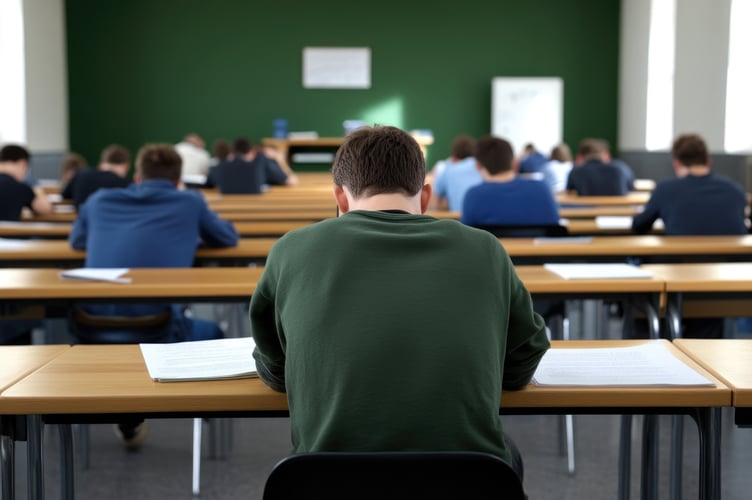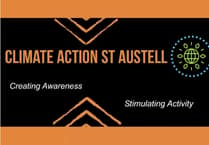HANDS up if you remember your GCSEs? Mine, taken in 1989, seem increasingly distant. Daughter is due to sit hers next year, and is currently enduring mocks – sorry, “trial exams” – in a way that makes me wonder why we still subject our children to such barbaric academic assessments.
To her credit, she’s knuckling down to revision, even in the subjects she despises (namely shocking science and ghastly geography). I am booted out of my home office on a daily basis, and as neither of us is a paragon of tidiness, what should be a calm and tidy workspace more often resembles a bombsite.
The Other Half and I have attended numerous sessions at school, designed to advise students on revision techniques and parents on how to support them. Common sense suggests the latter is to stay out of the way until the requirement of assistance/snacks/hugs has been clearly signalled.
I was alarmed by how much I had forgotten about subjects I once got top marks for. Maths and chemistry were never my bag, but I managed to scrape A grades through hard graft. But when Daughter asks me for help with quadratic equations or isotopes – well, frankly, she might as well ask the cat.
Even English was intimidating, which was deeply concerning, bearing in mind I work with words for a living. So much of the skill is in knowing how to pass an exam, signposting similes and foreshadowing to the examiner for crucial marks.
I wonder how I would have scored on the moody extract from Jamaica Inn? Best not to linger on that. And what’s the deal with expecting them to remember chunks of Shakespeare by heart (no text books allowed in the exam hall)? Not fair.
In contrast, the physics revision session was illuminating: once I’d been shown how the question worked, and that all the information needed for a particular equation was there on the page, I felt like even I could pass GCSE Physics – and that seemed to defeat the object.
It’s safe to say chemistry is Daughter’s very least favourite subjects. She knows it, I know it, her teacher knows it. I’ve been researching tutors, like the middle-class, vicariously high-achieving parent I am.
So I listened with great interest to education minister Bridget Phillipson’s proposed reforms. Schools “must be an epicentre of the strongest possible foundations of knowledge, and the skills to excel in the modern world”, she said.
First off the starting block was the expectation that schools will work towards offering triple science GCSE as standard, alongside a potential new qualification for 16-18 year olds in data science and AI. This will reportedly help more young people “succeed in the science and tech careers that power our economy”.
Yawn. Sorry, did I actually write that out loud? As a card-carrying humanities junkie – English and languages were my preference – I am weary of hearing successive governments big up science at the expense of the “arty” subjects no one believes will lead to “proper jobs”.
Whatever happened to encouraging young people to follow their gut and prioritise the subjects that bring them joy? I have yet to meet anyone who can think of a good reason why 15-year-olds need to study quadratic equations, given how few of us need them in everyday life.
So thank goodness arts GCSEs are to be given equal status to humanities and languages, recognising their value in boosting confidence and broadening skills for a competitive job market. Even pop titan Ed Sheeran celebrated changes to "outdated systems that stop kids from studying music and the arts".
Sadly, David Cameron’s EBacc is to be scrapped, having failed to gain traction or encourage take-up of subjects including languages (I blame Brexit). I despair at governments introducing things to great fanfare, only for them to be pulled as damp squibs a few years later. Daughter is doing the EBacc, and has a love-hate relationship with Spanish as a result.
There are buzzwords, of course: “oracy” gets a couple of paragraphs, meaning youngsters will be coached in the art of confident public speaking, and there’s at least one appearance of “resilience”.
Personally, I would really love kids to be able to leave school as rounded individuals prepared for life. Our children are human beings, and school shouldn’t be a sausage factory for the current government’s ideal jobs, be they technology or otherwise. We need more than that to keep the wheels of society running smoothly.
It’s therefore good to see non-academic content being introduced at primary and secondary school level, with younger children learning about money and developing the critical thinking required to spot and challenge fake news and disinformation, while their older counterparts are taught what a mortgage is and how it works.
Our coming year is likely to be stressful and exciting in equal measure, and we’re strapping in tight for the ride. Wish us luck!





Comments
This article has no comments yet. Be the first to leave a comment.